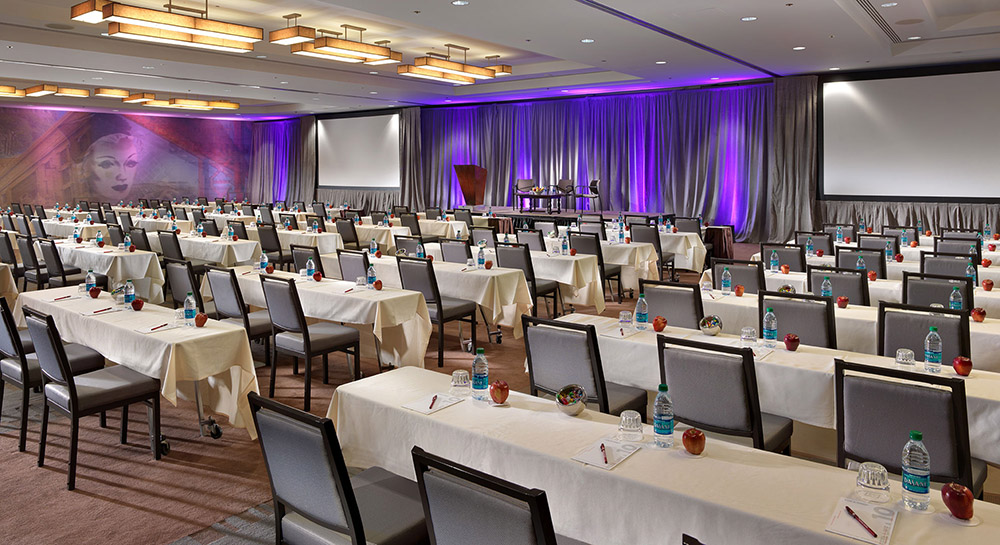Importance of Culture to an Event Company

The success of any event company is heavily tied to its ability to understand and appreciate the cultural nuances associated with hosting an event. As an event planner, having a solid understanding of different cultures can make or break your reputation as a successful host. Not only does it make for happier attendees, but it also leads to higher customer satisfaction rates that generate repeat business and referrals from clients who were pleased with the service they received.
Cultural understanding allows you to deliver events tailored specifically for each client’s unique needs while demonstrating respect for differing values, beliefs and customs. In this blog post, we’ll explore why culture is so important when running an event company and provide three examples on how you can incorporate culture into planning your events.
What is Culture and How Does It Relate to Event Planning?

Culture is a complex concept that refers to the shared set of beliefs, values, customs, practices, and behaviors of a particular group or society. It influences the way people interact with one another, their attitudes toward different issues, and their overall worldview.
When it comes to event planning, understanding the cultural background of your attendees is crucial in ensuring that the event is not only enjoyable but also respectful and appropriate. Incorporating cultural elements such as food, music, and decor can create a unique and memorable experience for attendees.
On the other hand, failing to acknowledge cultural differences can result in unintentional offense and a negative impact on the event. Therefore, it is essential to hire corporate event planners you can count on.
Understanding Your Audience Through Cultural Awareness
In our diverse world, understanding your audience through cultural awareness has become more important than ever. Taking the time to understand different cultures, customs, and beliefs can help you connect with your audience on a deeper level. It’s not just about avoiding cultural faux pas; it’s about showing respect and empathy for the people you are addressing.
Whether you are presenting a marketing campaign, giving a speech, or simply having a conversation, cultural awareness can help you navigate potential pitfalls and create more meaningful connections. So next time you’re communicating with a group, take a moment to consider their cultural background and how you can tailor your message to better connect with them.
Setting the Tone with Cultural Etiquette

In today’s global society, it’s more important than ever to be culturally aware and respectful. Understanding and adhering to cultural etiquette can make all the difference in setting the tone for positive interactions and relationships. From greetings to gift-giving, different cultures have their own customs and traditions that should be acknowledged and respected.
By taking the time to learn about and practice cultural etiquette, you can not only show respect for others but also gain a deeper understanding of different cultures and build lasting connections. Whether you’re traveling abroad or interacting with people from diverse backgrounds in your own community, setting the tone with cultural etiquette is key to creating meaningful and mutually beneficial relationships.
Using Multicultural Strategies to Engage Attendees
In today’s globalized world, it is essential to include multicultural strategies when planning events. By doing so, you can ensure that attendees will feel welcomed and appreciated, which in turn can increase engagement levels. Multiculturalism goes beyond just acknowledging different cultures; it means creating an environment where attendees can fully participate and understand the objectives of the event.
Strategies such as using culturally diverse food options, including diverse speakers, and incorporating activities that celebrate different cultures can help make your event more inclusive and engaging for everyone. As an event planner, it’s important to be attuned to diversity, embrace cultural differences, and make the effort to create a welcoming and inclusive environment to engage all attendees.
Incorporating Cultural Practices into Events

Events are a great way to celebrate and bring people together, but what makes them truly special is when they incorporate cultural practices. Whether it’s a wedding, a festival, or a corporate gathering, including traditional customs and practices can add depth and meaning to the experience. It’s a chance to showcase cultural diversity and share the beauty of different heritages with others.
From food and music to dance and fashion, there are so many elements to draw from and explore. When planning an event, consider incorporating cultural practices that will resonate with your audience and help create a memorable experience. By doing so, you’ll not only elevate the event itself but also promote cross-cultural understanding and appreciation.
Leveraging Local Art and Music to Enhance the Experience
Immersing yourself in the local arts and music scene can truly enhance your overall travel experience. There’s something special about discovering the unique talent and expression of a community through its creative output. Whether it’s listening to a live performance of traditional folk music or admiring a vibrant street mural, supporting local artists and musicians can also have a positive impact on the area’s economy and culture.
Plus, you never know what kind of hidden gems you might uncover by tapping into the creativity of a new destination. So, why not add a little art and music to your next travel itinerary? You might just be surprised at the unforgettable memories that await.
Overall, successfully planning an event that honors and reflects a variety of cultures can be tricky, yet rewarding. It all comes down to truly understanding your audience and engaging with them in unique ways, from their background and culture to their expectations for your event.
By considering cultural etiquette before any event planning decisions begin and by adding in multicultural elements like food, art, or music you can ensure attendees experience a sense of inclusion, comfort and connection during the event.
Diversity is the spice of life, so remember to incorporate cultural practices into each part of your event planning process. With thoughtful attention to detail, you’ll be able to plan an amazing event that your diverse guests will appreciate and remember fondly!




